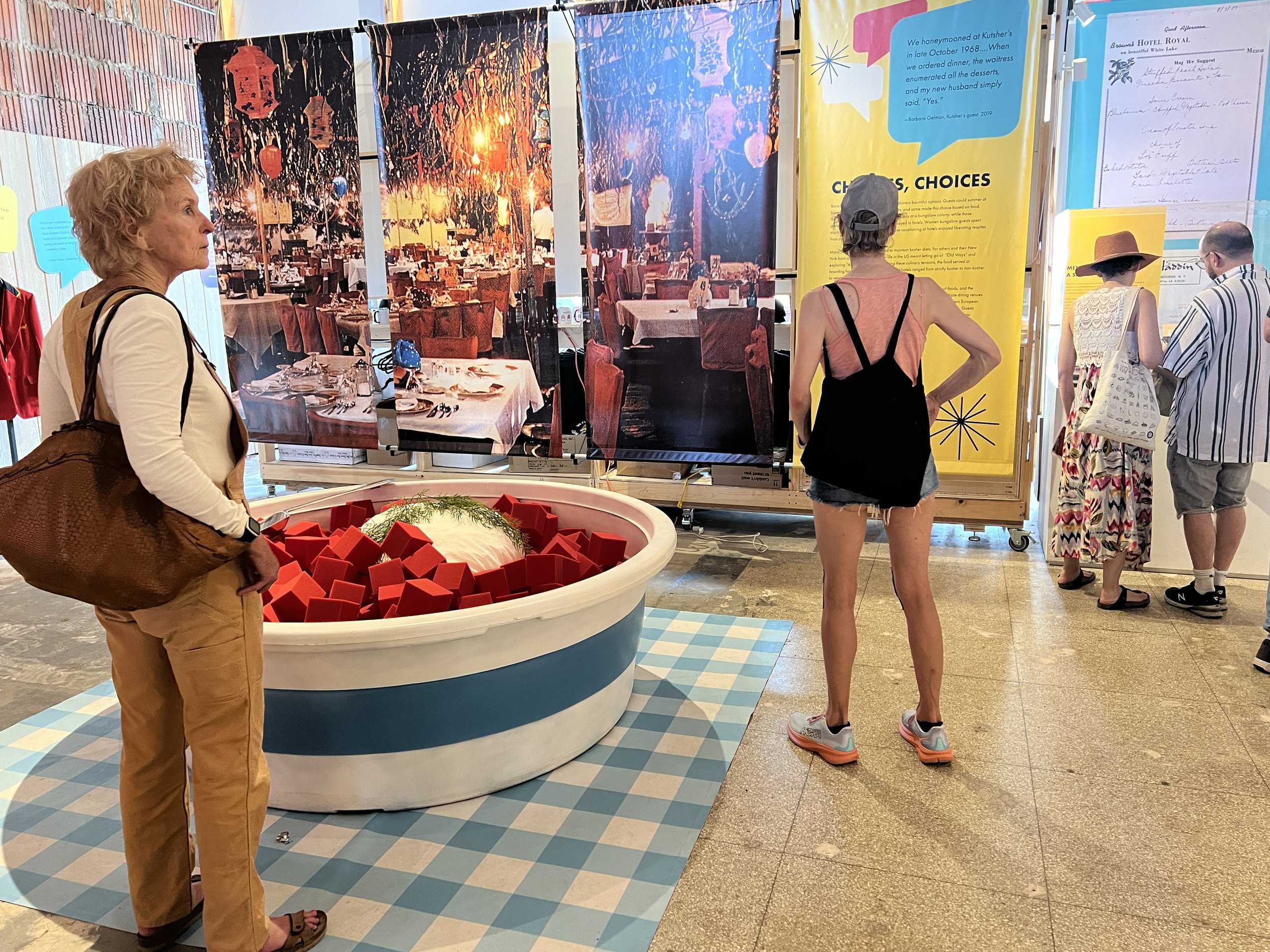



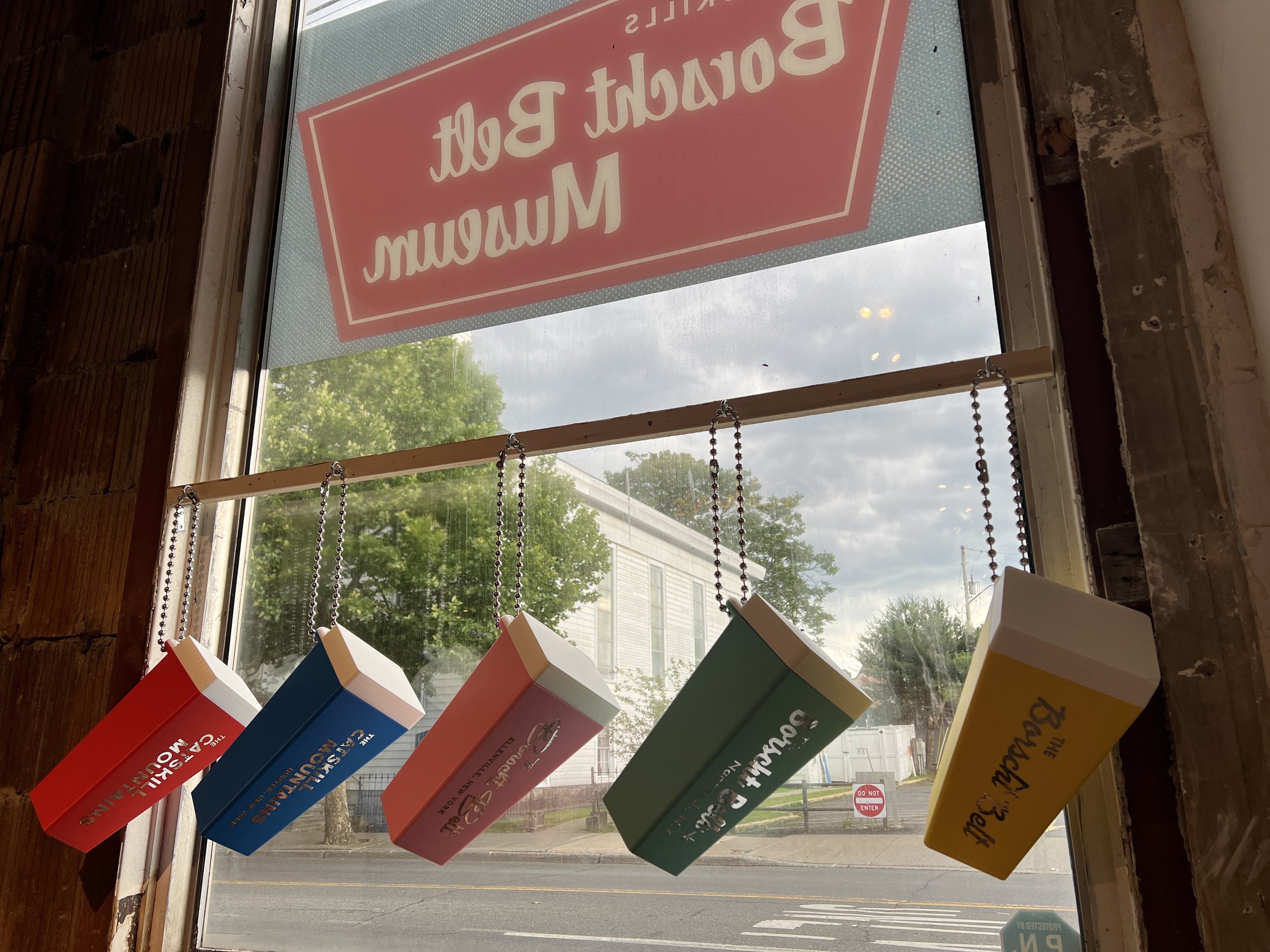
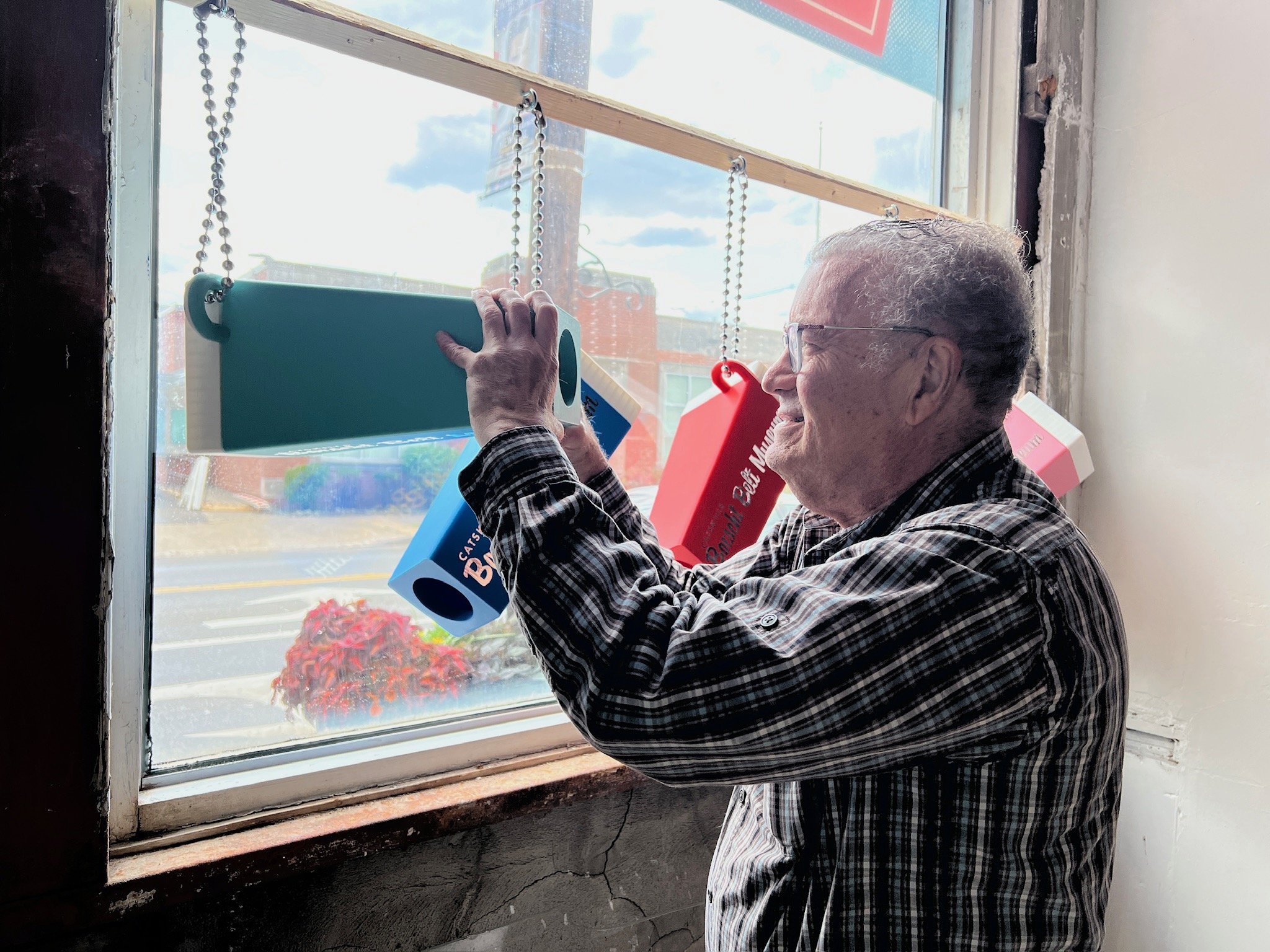





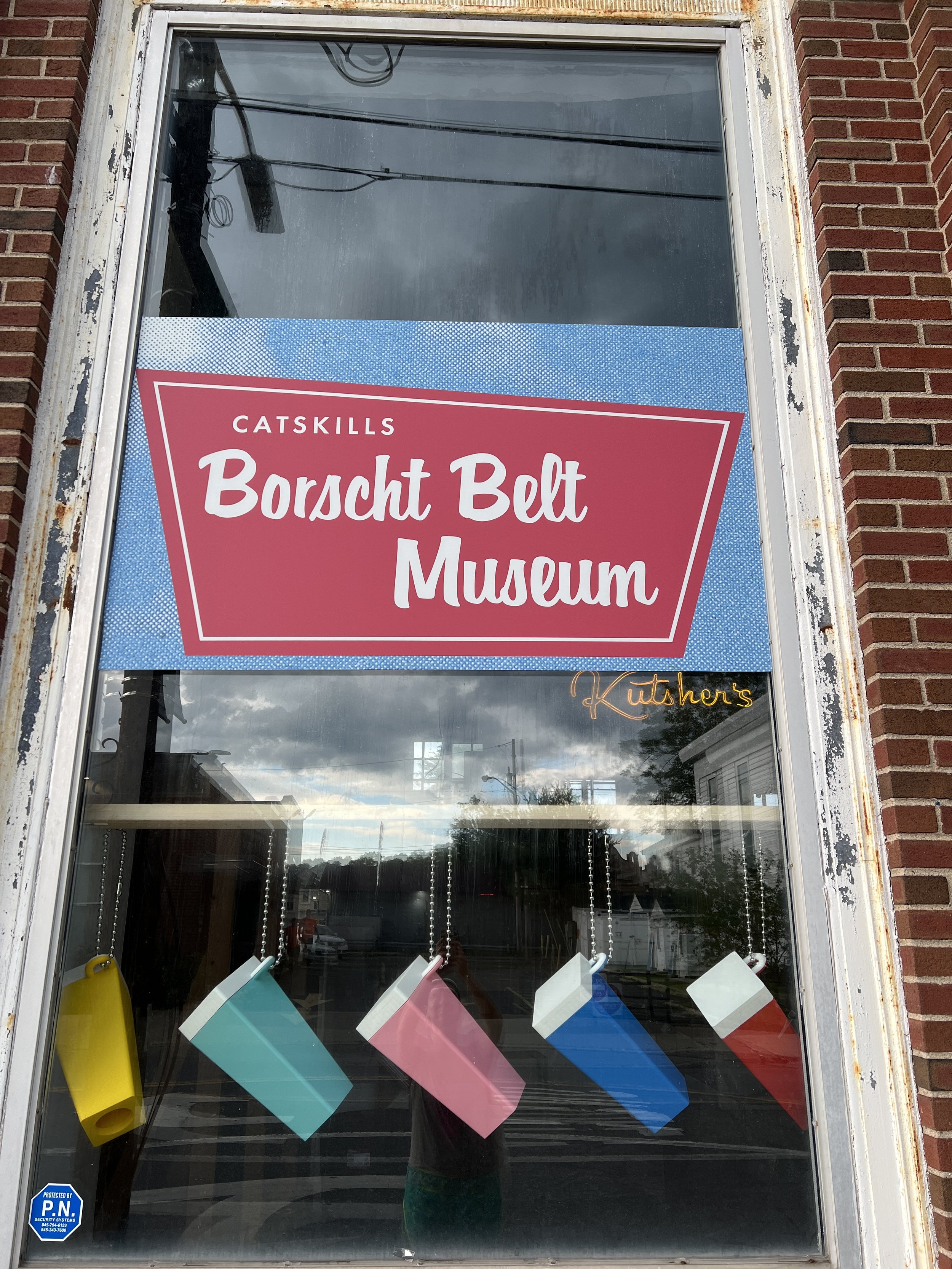
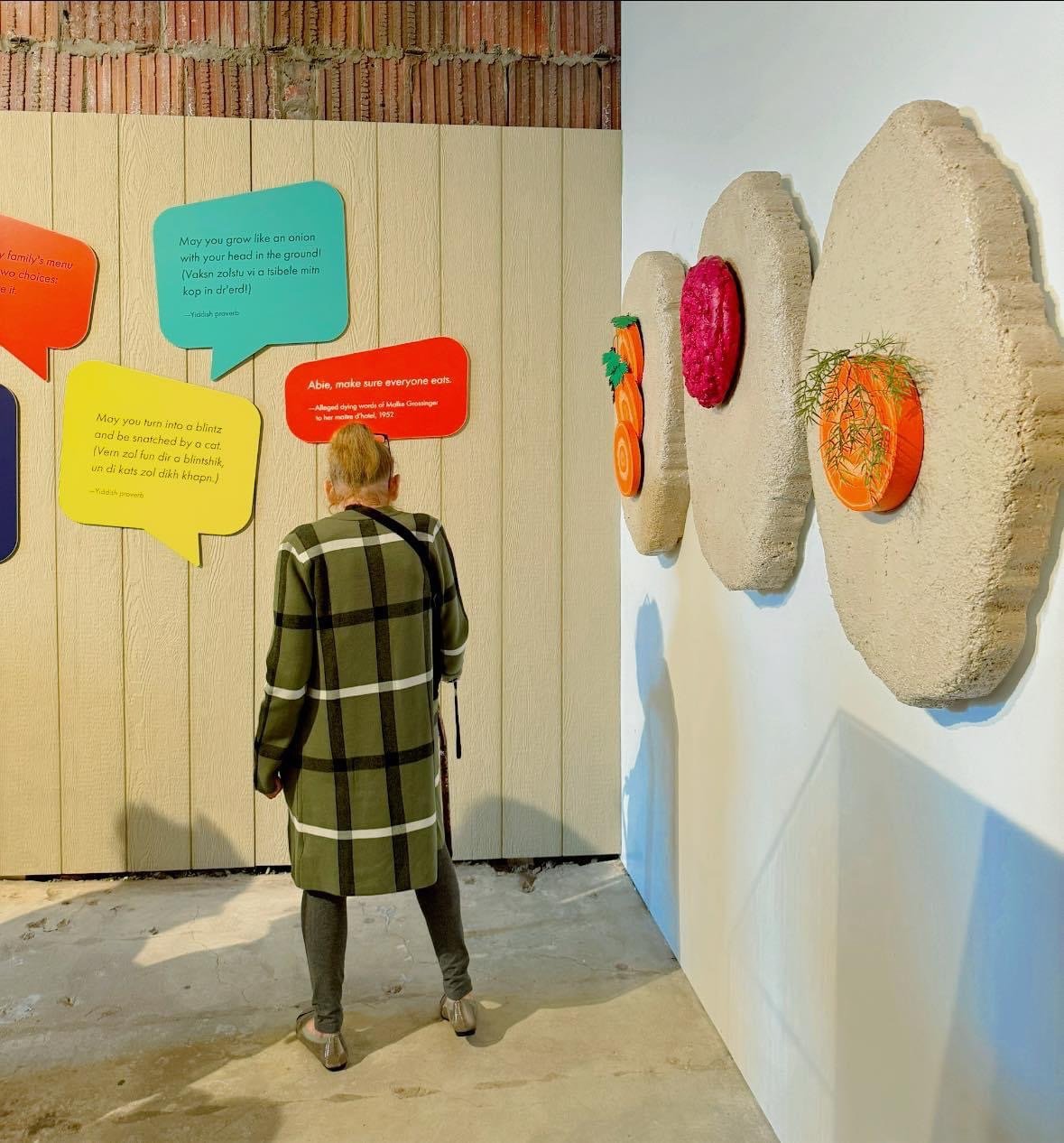
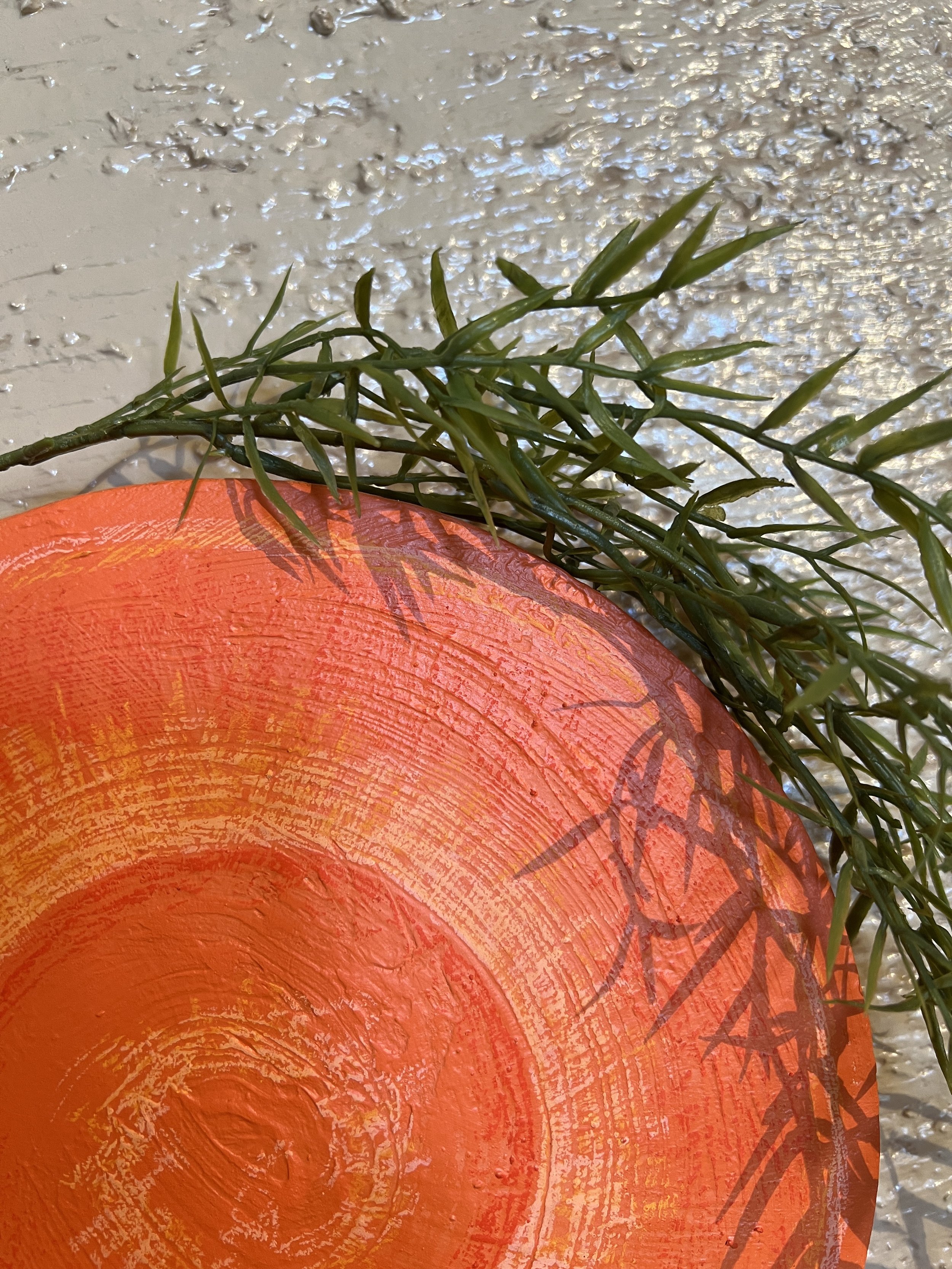

This series of work was commissioned for the "And Such Small Portions! Food and Comedy in the Catskills Resort Era" at the Borscht Belt Museum in Ellenville, NY. This exhibit, on display July-November 2024, explores the interplay of food and humor that happened in Borscht Belt dining rooms, kitchens, and theaters, and ultimately shaped a uniquely Jewish American culture that still thrives today.
The World's Biggest Bowl of Borscht - An oversized sculpture representing the beet soup known as borscht that was ubiquitous on the menus of 20th-century Catskills resorts. In a 1937 issue of Variety, editor Abel Green coined the terms "borscht circuit" and "borscht belt" to refer to Jewish resorts in the Catskills. The phrase caught on and was popularized by Catskills veteran Joey Adams and other comedians and columnists. Jewish immigrants savored the rich flavor of borscht and the connection it offered to their Eastern European heritage.

Familial Tchotchkeys is on display in the front window of the Borscht Belt Museum. These photo viewers are my oversized re-creation of the keychains that many of the resorts would give to their guests as souvenirs in the 50’s and 60’s. In my version, I’ve filled them all with historical images of my own family vacationing in the Catskill mountains from the 1920s-1960s. Swipe to see what’s inside of each color! And a photo of my dad looking into the one of him when he was 8 years old with his mom. The last image shows what the original keychains looked like. Tchotchkeys is a play on the yiddish word tchotchke, which means a small trinket.

Gefilte Fish - a trio of oversized gefilte fish, a dish made from a poached mixture of ground deboned fish, such as carp, whitefish, or pike. It is traditionally served as an appetizer by Ashkenazi Jewish households. Popular on Shabbat and Jewish holidays such as Passover, it may be consumed throughout the year and was commonly served on the menu at Catskills resorts.